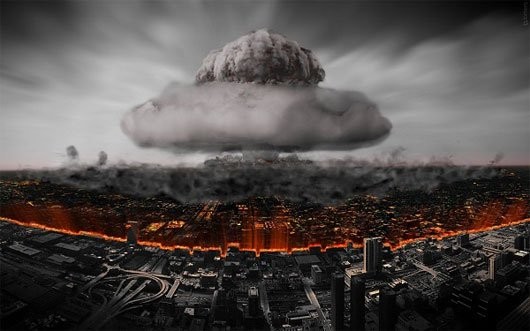(VOVWORLD) - On Sunday, North Korea tested a thermonuclear bomb despite tough sanctions and military threats from the US and other countries. It was North Korea’s 6th nuclear test.
 Photo: internet Photo: internet
|
This is the second time North Korea has publicly announced a successful test of a hydrogen bomb. On January 6, 2016, North Korea tested a hydrogen bomb to mark Kim Jong Un’s birthday. According to Pyongyang, the H-bomb test aimed to protect North Korea against threats from the US and North Korea joined the list of nuclear armed countries. But at that time, South Korea’s National Intelligence Service said it suspected the device North Korea tested on January 6th was not an H-bomb because no radiation was detected.
Danger of hydrogen bomb
The hydrogen bomb is a second generation nuclear weapon developed by the US in early 1950s. A thermonuclear or hydrogen bomb is thousands of times more powerful than an atomic bomb. In a US test near the Bikini atoll in 1954, this bomb was found to be 1,000 times stronger than the atomic bomb that hit Hiroshima in 1945. Only the US, Russia, the UK, France and China possess hydrogen bombs. North Korea’s successful test of an H-bomb poses a new threat to the world. An American intelligence official on Sunday said there is no doubt that North Korea tested an advanced nuclear device. According to a new US intelligence assessment, North Korea’s sixth nuclear test on Sunday released the equivalent of 140 kilotons of TNT, South Korea estimated 50 kilotons and Japan estimated 70 kilotons of TNT.
The North Korean Ambassador to the UN Han Tae Song said Pyongyang’s nuclear tests and defensive measures are gifts to the US. He warned Washington of further gifts from Pyongyang.
The UN Security Council convened an emergency meeting at the request of the US, Japan, the UK, France and South Korea. At the meeting, countries called for further sanctions against Pyongyang. The US Ambassador to the UN Nikki Haley said Washington wants the strongest sanctions ever imposed on the regime to “resolve this problem through diplomacy”. The Security Council agreed to spend one more week seeking a response to North Korea’s escalation and vote on a new resolution next Monday.
Regional countries strengthen their defense
Following North Korea’s nuclear test, the US and South Korea agreed to end limits on the payloads of South Korean missiles. During a call with South Korean President Moon Jae In on Monday, President Donald Trump also gave “conceptual approval” for South Korea to buy billions of dollars of weapons from the United States.
Two days after North Korea’s nuclear test, China conducted a military drill in preparation for a surprise attack. China’s missile forces shot down flying missiles in a simulation exercise in the Bohai Gulf. Maritime expert Li Jie in Beijing said China’s immediate response to North Korea’s latest H-bomb test sent a tough message about North Korea’s continued provocations.